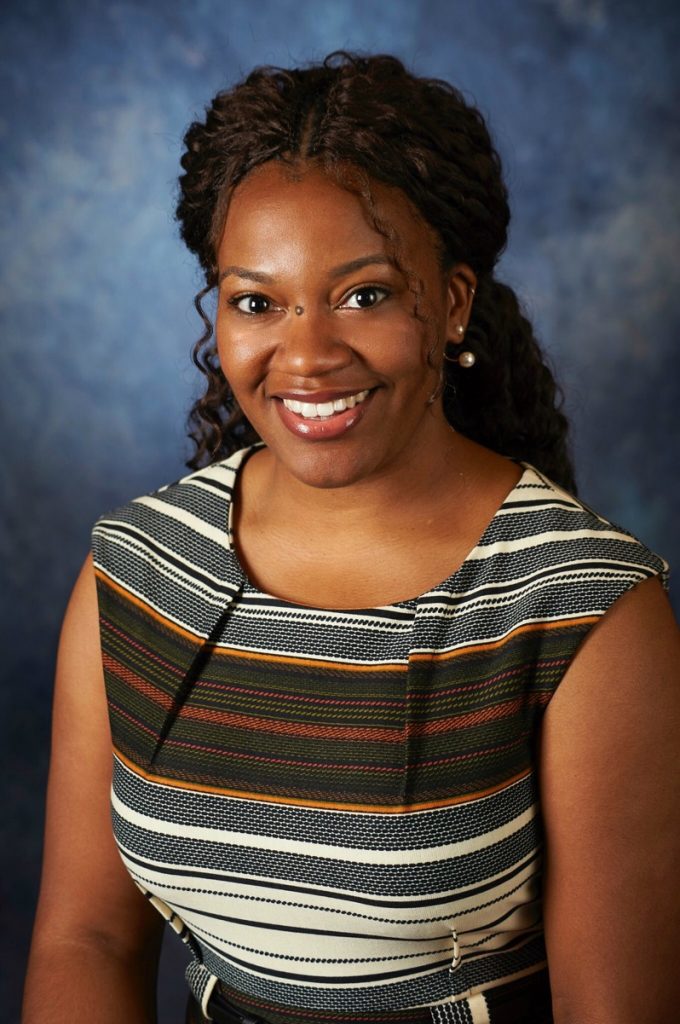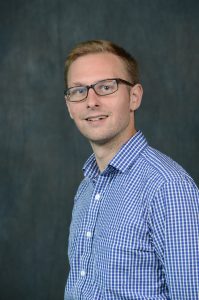
First-time ENDO attendee, PhD student Maigen M. Bethea, reached out to veteran attendee and MSTP student, David Bacsik, to get some tips on how to make the most of ENDO 2018 in Chicago.
This year the Endocrine Society celebrates the 100th Annual Meeting and Expo in the Windy City, Chicago, Ill., from March 17 to March 20. As a first-time attendee, I wanted to ask an experienced ENDO veteran questions in preparation for the conference so I reached out to David Bacsik, PhD, a second year medical scientist training program (MSTP) student at the University of Washington in Sarasota, Fla. He’s attended ENDO three times and has mastered navigation of this huge conference.
Maigen: When did you first attend the ENDO meeting and what did you expect?
David: The first meeting I attended was in 2014 in San Francisco. I was an undergrad at the College of Florida. Earlier that year I applied through the Endocrine Society’s Summer Research Fellowship. Through this program, I worked with Joe Bass at Northwestern and at the end of the program we were allowed to attend the annual ENDO conference. I expected it to be a small conference with hundreds of people but that definitely wasn’t the case. There were thousands of people and hundreds of presentations. I didn’t expect it to be so massive. Since then I’ve gone every year…I loved it.
Maigen: It sounds a bit overwhelming. This will be my first time attending ENDO. What advice would you give first-time attendees to ensure they get the most out of the meeting?
David: I think the absolute best thing is to interact with the professionals at the meetings. We have access to tons and tons of scientific papers, but the most exciting thing is to talk with the actual authors and get insight. Another thing that is really great is when your work overlaps with the author’s work and you can form interactions. I feel that in addition to networking, it is especially critical for young budding scientists like ourselves to participate in the formal and informal Career Development Workshops (CDW) that are available in the Career Center during ENDO 2018.
Maigen: What do these Career Development Workshops entail?
David: These are sessions that occur one or two times per day during ENDO 2018. The Endocrine Society hosts these sessions in the Career Center, a space dedicated for trainees and early career professionals. From these sessions I’ve learned how to seek effective mentorship, how to be an effective mentee, how to write a scientific manuscript, and much much more. Additionally, there is a grant-writing session that is very helpful for individuals seeking to obtain their own funding during their graduate careers. All of these sessions are geared towards facilitating the professional growth of trainees and early career professionals.
Maigen: What is the Early Career Forum?
David: It’s applicable for those in the early career stages. This is a day-long program, designed by the Trainee and Career Development Core Committee (TCDCC). At this forum, you’re exposed to different career opportunities within the endocrinology field. People come from all walks of life with different jobs and we’re able to sit and talk with them. That’s my favorite part. Additionally, sessions entitled “Bench, Bedside, and Beyond: Stories of How Scientists and Clinician are Translating Their Ideas into Business Applications” have been added to further enrich the professional development of trainees and early career professionals.
There were thousands of people and hundreds of presentations. I didn’t expect it to be so massive. Since then I’ve gone every year…I loved it. We have access to tons and tons of scientific papers, but the most exciting thing is to talk with the actual authors and get insight. –David Bacsik
Maigen: Is there any funding or travel awards for the ECF or for ENDO 2018?
David: There’s a handful that I know about. The rest can be found on the Endocrine Society’s website. Offhand, there is the Summer Research Fellowship that is geared towards undergraduates and first year medical or graduates that provides an all-expenses paid trip to ENDO 2018. There are also awards offered for the Early Career Forum that pays for the workshop and covers the registration fee for ENDO 2018. Then there are the abstract-based travel awards for ENDO. [Editor’s Note: The deadline for these awards was Nov. 6, 2017.]
Maigen: If you had to describe how the ECF and CDW at ENDO have helped you in six words, what would they be?
David: I’ve found really good endocrinology mentors!
Maigen M. Bethea Bethea is currently a fourth year Ph.D. candidate in the Cell, Molecular, and Developmental biology graduate program at the University of Alabama at Birmingham (UAB). Her thesis work in the lab of Dr. Chad Hunter focuses on understanding how transcription factors and transcriptional coregulators control decisions governing pancreatic beta-cell development and postnatal cell function.
EndoCareers® Early Career Forum
March 16│ 8:00 AM-6:00 PM
The Early Career Forum is an opportunity for select postdoctoral fellows, clinical fellows, medical students, and graduate students to interact with their peers and recognized experts in the endocrine community. The interactive program includes a mix of plenary, panel discussion, and breakout groups on essential career topics and issues facing young scientists.
Workshop registration and ENDO 2018 registration will be waived for travel award recipients. For individuals who do not receive a travel award, a registration fee of $125 will apply. Registration is required for this session.
EndoCareers® Career Development Workshops
March 17 – 20, 2018
The Endocrine Society’s Career Development Workshops (CDW), designed especially for trainees, are held each day during ENDO 2018. These multi-topic sessions provide networking and professional development opportunities for trainees and early career professionals in an intimate environment.
EndoCareers® Career Center
March 17 – 19, 2018
The early Career Center is a great place for early career professionals to gather, exchange ideas, information, and experiences. Use the early career center to plan your day, meet up with friends, or recharge after a day of scientific sessions or early career workshops.
Mentoring and Poster Reception
March 18, 2018 | 7:00 – 9:30 PM
The Committee on Diversity and Inclusion is excited to host this reception at ENDO 2018. This event presents a great opportunity for trainees of underrepresented groups to present their research in an intimate environment as well as a networking opportunity for mentors from the Endocrine Society, industry, and government to share their career experiences and advice for young scientists. All are welcome!
Full program schedule.

 There were thousands of people and hundreds of presentations. I didn’t expect it to be so massive. Since then I’ve gone every year…I loved it. We have access to tons and tons of scientific papers, but the most exciting thing is to talk with the actual authors and get insight. –David Bacsik
There were thousands of people and hundreds of presentations. I didn’t expect it to be so massive. Since then I’ve gone every year…I loved it. We have access to tons and tons of scientific papers, but the most exciting thing is to talk with the actual authors and get insight. –David Bacsik